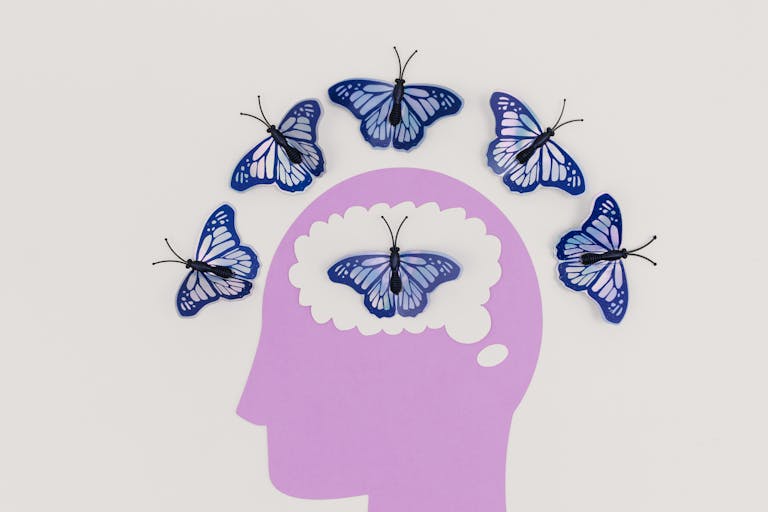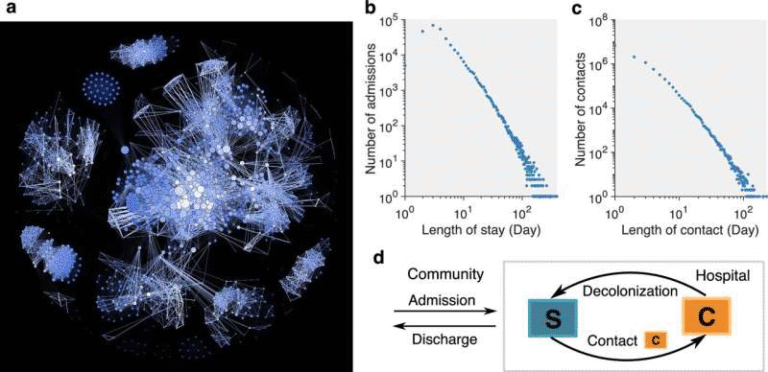Sleep, the Glymphatic System, and the Brain’s Waste-Clearing Network

Scientists are uncovering more evidence that sleep plays a critical role in brain health, specifically in how our brains remove toxic waste. The center of this discovery is the glymphatic system, a specialized waste-clearance network that works differently from the body’s lymphatic system. This system has been linked to the clearance of harmful proteins such as amyloid beta (Aβ) and tau, which are strongly associated with Alzheimer’s disease and other forms of dementia. Recent studies shed light on how this system works, the role sleep plays in it, and why disrupted sleep might be more dangerous to our brains than many realize.
What is the Glymphatic System?
Every cell in the body generates waste. Normally, waste is cleared through the lymphatic system, which moves cellular byproducts into the bloodstream for removal. However, the brain does not have its own lymphatic vessels, leading researchers to wonder for decades how it handles waste.
That question began to be answered about 12 years ago, when scientists discovered the glymphatic system. This system uses cerebrospinal fluid (CSF)—the clear liquid that cushions the brain and spinal cord—to “flush” toxins from the brain. CSF flows along blood vessels, moves into spaces between neurons, collects waste, and then drains through large veins.

One of the most significant substances cleared through this process is amyloid beta (Aβ). When it builds up, Aβ forms plaques in the brain. These plaques, together with tangles of tau protein found in neurons, are hallmark features of Alzheimer’s disease.
Sleep and Brain Cleaning
Animal Studies
Initial evidence for the glymphatic system’s activity came from mouse studies, which showed that waste clearance ramps up significantly during sleep. When mice were awake, levels of Aβ in their brains increased, but those levels dropped sharply during sleep.
A recent 2025 study published in Cell found a new layer to this process. During deep sleep, the brainstem releases norepinephrine in slow, rhythmic waves. This drives slow vasomotion, where blood vessels contract and dilate in a pulsing rhythm. That pulsation creates fluid flow that helps push CSF deeper into brain tissue, sweeping toxins away.
Interestingly, when mice were given the common sleep aid zolpidem, their norepinephrine-driven vasomotion was reduced by about 50%, and fluid transport into the brain dropped by over 30%. Although zolpidem helped them fall asleep faster, their brains became less efficient at cleaning themselves. This raises an important point: not all sleep is equal, and some sleep-inducing drugs might interfere with natural brain-cleaning processes.
Human Studies
Human studies provide parallel insights. In a randomized crossover trial published in Fluids and Barriers of the CNS (2025), healthy adults were tested after a night of normal sleep and after total sleep deprivation. Results showed that after sleep, amyloid beta and tau levels in cerebrospinal fluid dropped significantly compared to after deprivation.
Another surprising detail was that CSF albumin levels increased after sleep, but markers of neuronal injury (like neurofilament light chain and GFAP) did not change much. This suggests that sleep selectively clears soluble proteins such as Aβ and tau rather than just diluting everything in the brain.
Beyond biochemical changes, researchers are now using advanced devices to measure brain-cleaning in real time. In 2025, a study published in Nature Biomedical Engineering introduced a wireless brain monitor that measures parenchymal resistance using electrical impedance spectroscopy. This resistance reflects how much space there is between brain cells—the extracellular space. During sleep, resistance dropped, indicating an expansion of extracellular volume and enhanced fluid flow. The device’s results also matched traditional sleep metrics, like EEG delta waves, heart rate, and MRI-based solute clearance.
Conflicting Evidence and Debate
While the sleep–glymphatic connection is compelling, it’s not universally accepted. Some researchers point out conflicting findings. For example:
- A study in mice suggested glymphatic clearance might actually be more active during daytime rather than sleep.
- Other experiments found that clearance of injected fluorescent dye in mouse brains was reduced during sleep or anesthesia, compared to awake states.
- Critics also note that measuring glymphatic activity in humans remains indirect and technically challenging. MRI studies, while useful, involve contrast agents and don’t provide continuous real-time monitoring.
Because of these uncertainties, the scientific community has not reached consensus on whether sleep is always the prime time for waste clearance. The debate continues, and researchers are actively testing different models to clarify how this system functions in humans.
Sleep Disorders and Their Impact
If disrupted sleep impairs glymphatic function, then sleep disorders could increase dementia risk by slowing toxin clearance:
- Sleep apnea, where breathing stops repeatedly during sleep, causes chronic sleep deprivation and oxygen drops. Both may contribute to toxin buildup. Studies show that after treating sleep apnea, the clearance of amyloid beta improves.
- Insomnia, characterized by difficulty falling or staying asleep, has been linked to higher dementia risk. However, it remains unclear whether treatment for insomnia lowers toxin levels.
Researchers are also investigating orexin receptor antagonists, a class of drugs used for insomnia, to see whether they improve glymphatic clearance. Early studies are ongoing, but no firm conclusions have been reached.
Why Good Sleep Matters
Collectively, these studies highlight an important message: quality sleep is essential for a healthy brain. Short-term sleep deprivation clearly impairs memory and cognitive performance. Longer-term, the lack of adequate deep sleep may lead to an accumulation of toxic proteins that raise the risk of dementia.
That said, scientists emphasize that while there’s strong correlation, causation is still not fully proven. We don’t yet know for sure whether improving sleep can directly lower dementia risk by enhancing glymphatic clearance. However, it’s a promising area of study that could shape how we approach prevention of neurodegenerative diseases.
Extra Insight: Beyond the Glymphatic System
The Role of Cerebrospinal Fluid
CSF is more than a “brain washer.” It cushions the brain, transports nutrients, and helps maintain stable pressure inside the skull. The fact that it doubles as a waste-transport system shows how multipurpose this fluid really is.
Sleep Stages and Brain Health
Sleep has multiple stages: light sleep, deep sleep (slow-wave sleep), and REM sleep. Deep sleep appears most critical for glymphatic activity. But REM sleep is vital for memory consolidation and emotional regulation. Together, these stages balance both cognitive function and physical brain maintenance.
Evolutionary Perspective
Why would sleep evolve as a time for brain cleaning? One theory is that the brain can’t perform intense neural activity and waste clearance at the same time. Sleep provides a low-activity window where cleanup can happen without disrupting thought processes. This could explain why sleep deprivation feels like “mental fog”—toxins like Aβ may literally be building up.
Open Questions in Research
Several questions remain unanswered:
- Does glymphatic efficiency decline with age, and could this explain why dementia risk rises in older adults?
- Can lifestyle changes like exercise, diet, and hydration influence glymphatic clearance?
- Could future devices or treatments directly enhance glymphatic activity, reducing dementia risk even in people with sleep disorders?
These are the areas researchers are exploring today. The answers could change how we approach not only sleep medicine but also Alzheimer’s prevention.
The Takeaway
Sleep is not just about rest—it’s an essential biological process that may help the brain remove harmful waste. The glymphatic system plays a central role in this, with evidence showing increased clearance of amyloid beta and tau during deep sleep. However, not all studies agree, and researchers continue to debate the exact timing and mechanisms. What is clear is that good quality sleep supports brain health, while sleep disorders or poor sleep quality may impair the brain’s ability to clean itself.
As research continues, the hope is that understanding the glymphatic system will lead to new strategies for preventing cognitive decline and dementia. Until then, prioritizing consistent, restorative sleep remains one of the best things you can do for your brain.
Research Reference: Lyckenvik et al., 2025 – Fluids and Barriers of the CNS





